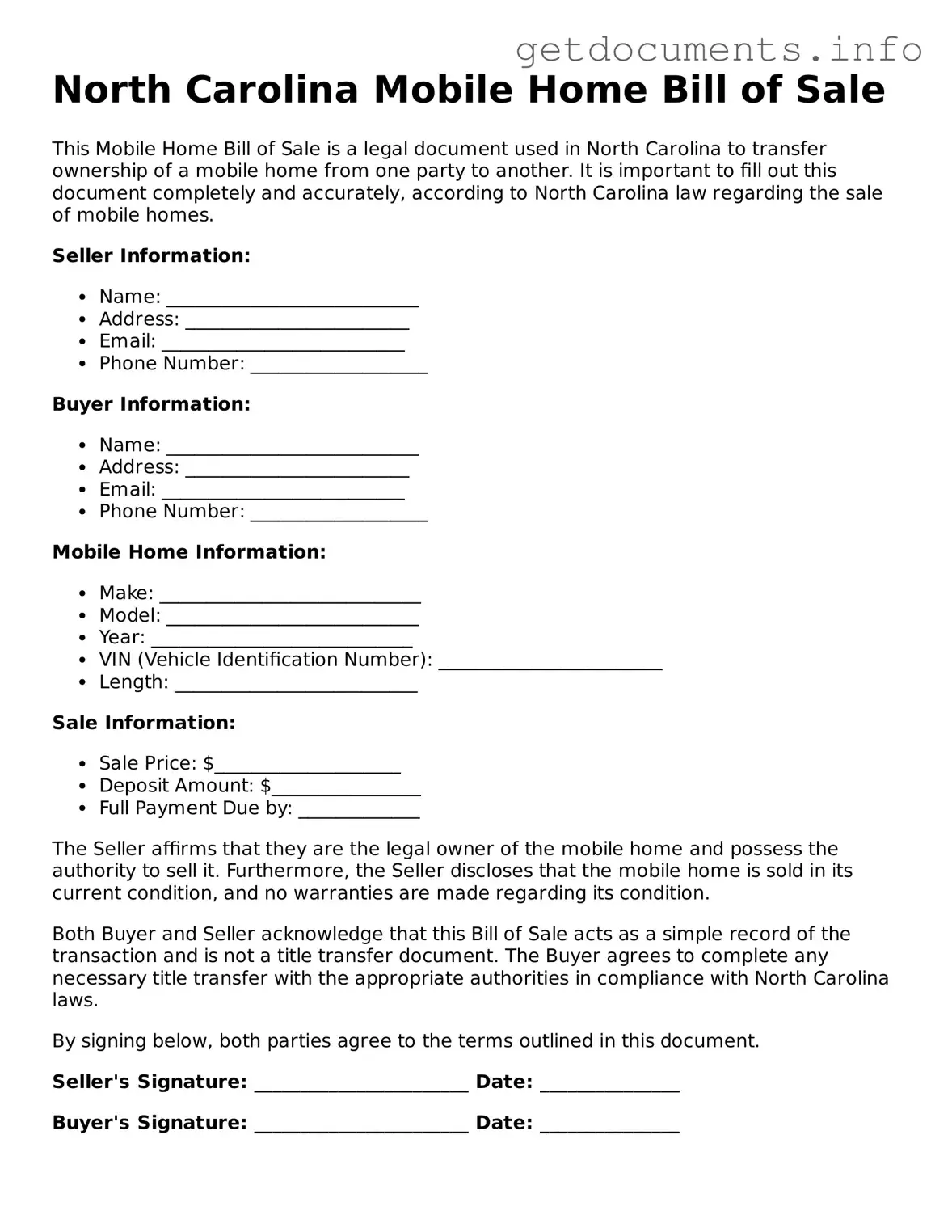Free Mobile Home Bill of Sale Template for North Carolina
The North Carolina Mobile Home Bill of Sale is a legal document used to transfer ownership of a mobile home from one party to another. This form serves as proof of the transaction and includes essential details about the mobile home, the buyer, and the seller. Understanding how to properly complete this form is crucial for a smooth transfer of ownership.
To get started on your transaction, fill out the form by clicking the button below.
Access Mobile Home Bill of Sale Editor

Free Mobile Home Bill of Sale Template for North Carolina
Access Mobile Home Bill of Sale Editor
Got places to be? Complete the form fast
Fill out Mobile Home Bill of Sale online and avoid printing or scanning.
Access Mobile Home Bill of Sale Editor
or
⇩ PDF File
